I’ve seen The Rise of Skywalker – here are my comments and thoughts. Please be aware that this episode is full of SPOILERS!
[DOWNLOAD]

I’ve seen The Rise of Skywalker – here are my comments and thoughts. Please be aware that this episode is full of SPOILERS!
[DOWNLOAD]

A funny conversation about strange habits that we don’t often talk about, with my brother James. Notes & scripts available below.
![]() [DOWNLOAD]
[DOWNLOAD]
…but remember the best way to listen to these episodes is by using a podcast app on your phone. That way you can listen to a bit, pause the episode and when you choose to listen again your app will remember where you previously stopped. If you’re wondering which podcast app to use, let me recommend the Luke’s English Podcast App, which contains the entire episode archive and loads of bonus stuff. Just search for Luke’s English Podcast App in the app store for Apple devices or Google Play store for Android, and yes it’s completely free. Using a podcast app means that you don’t have to listen to an entire episode in one sitting, which is the best way to listen to longer podcasts like this one.
In this episode, let’s just ask each other a bunch of “do you ever?” questions.
This is going to involve using present simple tense a lot. This is the most basic verb tense we have in English, and we use it to talk about permanent facts and habitual behaviour.
In lessons at school this tense is often taught to students at low levels because it’s a really important foundation for general English, but it tends to be a little bit dull – not the way students deal with the tense, but the way it’s presented in textbooks. Usually, materials based around present simple tense just involve daily routines, what time you normally get up, eat lunch, go to bed etc.
Students at that level lack the vocabulary to be able to talk about habits and routines in a more complex way. When they do have more vocabulary at higher levels, the course books always focus on other tenses – e.g. past tenses for telling stories about the past, future tenses for making predictions about the future, conditional sentences and modal verbs for speculating and so on.
The poor present simple tense is left with this boring reputation of just being a low-level bit of grammar which we only use to talk about what time we get up in the morning and how often we go to the gym.
So, let’s come back to present simple tense and see if we can use it to talk about slightly more unusual and fun things.
As a teacher, the main problem I have noticed when students are using present simple tense is just remembering to add ‘s’ or maybe ‘es’ (which often adds another syllable to the word – like ‘I wish’ and ‘he wishes’ for example). Often it’s just missing 3rd person forms. Like someone saying “He go” when it should be “he goes”. It’s so basic but it’s worth self-correcting if it happens.
Anyway, this episode is called “Do you ever?” and I’ve prepared a big list of unusual behaviour which I think we don’t often talk about, but which I think many of us do, or maybe it’s just me.
Now, I don’t necessarily do all of these things. They’re just based on observations I’ve made. Also, some of the things in this list were written by my brother during a conversation we had ages ago about weird little habits that we have.
Let’s see what happens in terms of the language that comes out. Will we switch to other tenses at any point? What kind of vocabulary will emerge? And do you ever do these slightly unusual things?
***Interruption***
I’m interrupting here because, before we go any further, I think it’s necessary to say a few things about this episode in order to help you understand it all a bit better.
First of all, you should know that this is quite a silly and rambling episode and it shouldn’t be taken too seriously. Most of what you’re going to hear is just for fun really and I hope you enjoy it.
There is quite a lot of rude language in the episode and by that I mean things like the F word (you mean the word “Fuck” – err, yes – OKay, thanks. Just checking. Wait – who are you? Never mind, carry on!) So there is some swearing but for me that’s quite normal in an informal situation but obviously – swearing is still not a good idea in polite company or at work for example. But for two people like James and me chatting informally at home, swearing might happen and, you know – I want this to be authentic, as if you’re sitting with us the whole time. So, that’s why there is swearing.
Also, I think it will probably be difficult for many of you to follow this conversation because we talk about some very specific and quite personal things, sometimes we talk quickly because we’re in a rush to say things before the other one interrupts us, we talk over each other sometimes and the topic of conversation changes a lot as we go through each question quite quickly.
So this is definitely going to be a difficult one, depending on your level of English of course. But sometimes you need a challenge!
Generally, I think I am quite easy to understand when I’m talking on my own, even when I’m speaking quickly. I just have a clear voice. But when I’m talking to friends on the podcast I think it becomes a lot more difficult to understand everything and that might demotivate you. But you need a bit of a challenge from time to time. I hope the bits that you understand will carry you through the bits that you don’t understand.
But I do want to help you understand as much as possible, so I’m now going to read out all the Do You Ever…? Questions that we answer in this episode. I’m going to read them all out now, just to give you a chance to understand them all in advance. This can make a big difference to your comprehension of this conversation.
If you have already had a chance to think about the different things that we talk about, you’ll be in a much better position to understand it all.
So, let me now go through this list of “Do you ever…?” questions and I’d like you to concentrate and just try to understand each one and then prepare to hear what we have to say about them in the rest of the conversation.
You should also consider whether you do these particular little things or not, and if you consider them to be normal, funny or weird.
Right, so listen carefully – these are the questions that James and I are going to discuss in this conversation. Here we go…
Fugzi – Waiting Room
The lyrics are, “I am a patient boy. I wait, I wait, I wait, I wait.”
James thought it was, “I am a pastry boy. I weigh, I weigh, I weigh, I weigh.”
That was the LEP Jingle Megamix that you heard at the end there. I haven’t played that on the podcast for a while. If you’d like to know where all those little samples in that jingle come from, check out the Jingles & Music category in the LEP App. There’s a full episode there in which I go through all the samples and explain where they all come from. It’s called “Deconstructing the LEP Jingle Megamix”.
Well done for listening to all of that. I wonder how many of you have made this far, and how many people just couldn’t handle it any longer for whatever reason, and how many skeletons there are with headphones on right now – skeletons that were perfectly healthy fresh-faced humans when they started listening to this, who slowly perished as the episode went on.
But not you – no, you made it all the way through and there’s a good chance you laughed with us, and perhaps were struck by a profound sense of shared experience when you realised that you also do some of the things we talked about.
But well done to you, in any case and I hope you also picked up some English along the way – because, after all, that is the main purpose of this whole thing, of course. I expect the lower level listeners or the more serious listeners probably stopped listening because they couldn’t keep up or because they felt that they didn’t have time. I’m not going to get into all the stuff about the pros and cons of long episodes vs shorter episodes and things like that. Anyway, the point is – if you made it this far then “nice one” and I wonder what your favourite moments were from this episode. You could share your thoughts in the comment section of course.
Let me thank James again for being on the podcast. I always enjoy our episodes together and I hope that that comes across in the recording.
Right, time to stop talking. There’s no time to mention that you should sign up to LEP Premium at www.teacherluke.co.uk/premium. No time to that, but you should anyway. There are now over 60 premium items available and more premium episodes are coming, I promise. They just take quite a lot of work and preparation. But there will be more coming before Christmas.
All I’ll say now is thank you again for listening and I will speak to you again on the podcast soon, but for now – goodbye!
The music you can hear at the end is called Wonderland and it was produced by James on his Akai MPC2000. You can check it out (and his other tunes) on his Soundcloud page here https://soundcloud.com/jt-2000
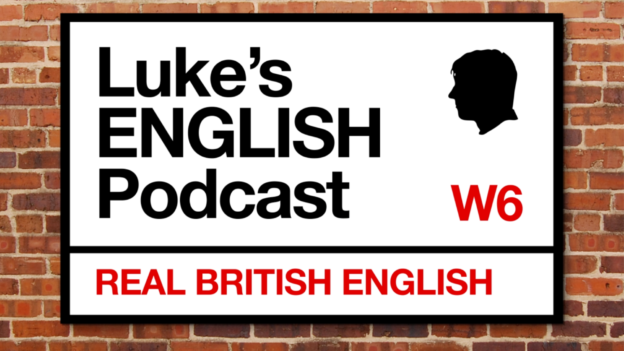
My friend Emina Tuzovic has learned English to a proficient level as a non-native speaker of the language. She says it has been “a long journey”. Let’s find out all about that journey of English learning in this conversation, recorded in London just a couple of days ago.
[DOWNLOAD]
Today on the podcast I am talking to my friend Emina Tuzovic, who is an English teacher.
For ages and ages I have been meaning to have Emina on this podcast for 3 main reasons:

1. Emina is absolutely lovely and it’s just nice to spend time talking with her, plus there’s plenty I’d like to find out from her that I’ve never really asked her before. That’s a benefit of the podcast, it gives me a chance to have in-depth conversations that often just don’t happen otherwise.
2. She is a non-native speaker of English who has learned the language to a proficient level – good enough to do a masters, a PhD, and to teach English at a very high level, to deliver workshops and seminars and just to live in the UK for a good length of time. So, she must have some valuable insights and experiences about learning English because she’s done it herself, but also about the cultural experience of moving to London and living there for what must be about 15 years at least I think.
3. She is a very well-qualified and experienced English teacher and so I am sure she has loads of insights into learning English from that point of view too, including certain areas of specialist knowledge as a result of her academic studies, including things like the challenges faced by native speakers of Arabic when they learn English. I’ve never talked about Arabic speakers of English on the podcast, so hello to all my Arabic speaking listeners (or should that be marhabaan.
As I said, it’s been quite hard to pin Emina down and interview her – mainly because our timetables are different, I live in Paris, she lives in London and she goes to bed so early in the evening. Thankfully the universe has finally allowed it to happen, here at the London School of English in Holland Park, London. This is where I used to work and where Emina still does work.
So the aim here is to have a long(ish) and natural conversation with Emina, touching on topics like learning English, cultural differences in the UK, teaching English and her academic studies in linguistics.
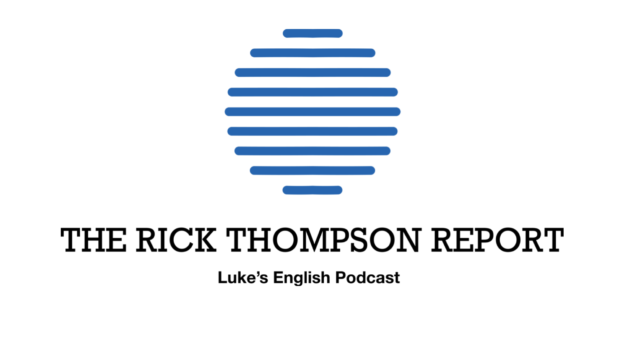
An update from my dad about Brexit, including details about Boris Johnson’s deal, the shutting down of Parliament, the upcoming general election and more. Includes some chat about Premiership football at the end.
![]() [DOWNLOAD]
[DOWNLOAD]
Last time we spoke it was early August. Boris Johnson had recently become the PM and was going to negotiate a new Brexit deal after Theresa May had failed to get Parliament to accept the deal she spent over 2 years to get. Brexit, at the time was due to happen on 31st October.
I just have one question, which is “What’s been going on?”
So there you have it. That was the Rick Thompson Report, recorded on Wednesday 13 November 2019.
The comment section is open if you’d like to share your thoughts there.
New episodes of LEP Premium are coming. To sign up go to www.teacherluke.co.uk/premium
Also download my app to get the entire archive plus loads of bonus extras like the phrasal verb series, various videos and also bonus app only episodes. You can also access the premium subscription through the app.
Thanks for listening and I’ll speak to you again on the podcast soon!

Let’s continue going through this list of words from an article I found in The Independent. Here is another list of 30 items of British English slang. Notes and links available below.
![]() [DOWNLOAD]
[DOWNLOAD]
From 2PM at the Fitzroy Tavern, 16 Charlotte Street, London W1T 2LY.
Email Zdenek to let him know you’re coming – teacherzdenek@gmail.com
Welcome to LEP#625. This episode is all about British English slang.
Let’s continue going through this list of words from an article I found in The Independent.
Here’s the original link
https://www.independent.co.uk/life-style/british-phrases-english-language-sayings-britain-england-uk-different-a8138046.html
Every version of every language has slang and also cultural reference points that are unique to that language. English is no exception of course and because it is such a diverse language in terms of the number of different dialects it has, it is quite possible for there to be slang in certain dialects that other speakers of the same language don’t understand. For example, Americans might not understand certain things said in British English. Of course it’s also difficult for learners of English to deal with slang. It’s not normally the language you encounter in the coursebooks and so on, and yet slang is very commonly used.
So, a dialect of English like British English might be difficult to understand for anyone who wasn’t born or grew up there.
That’s what this article was all about and the 88 bits of English (either words or expressions) listed, reflect this uniquely British version of English that might be confusing for everyone else in the world.
But I am here to try to lessen that confusion with my explanations and examples.
You can use this episode series to quickly learn a whole world of slang, which will help you understand and be understood by Brits more easily.
And even if you’re not planning to get chatting to some British people any time soon, you can consider this series just to be a chance to broaden your horizons as far as the English language is concerned and learn yet more of this precious vocabulary – because vocabulary probably is the most precious stuff of all. This is the difference, often, between intermediate English and advanced or proficient English – knowing how to adjust your style of English to meet various different situations. A knowledge of slang is essential, I think, in order to know all the possible light and shade in this language.
As ever with these articles, there are always a few little words or phrases that I dispute or at least don’t know. Last time it was “dench” which neither my brother nor I use, ever. (I made several edits to the episode after initially releasing it, with some comments that my brother sent to me via text). Let’s see if there are other similar words and phrases that I don’t use, perhaps because it’s a regional thing and not said in my area growing up.
As we go through the list I will let you know which ones I actually use and which ones I don’t. If you’re using me as a model for the type of English you want to speak, you can perhaps disregard any of the ones which I don’t use. But of course you should always be listening carefully to the English language as it is used and if you spot any of these expressions being used on TV, in music, films or just in normal life then that’s worth noting.
Also, I think that sometimes I use these expressions but in a knowing, ironic way. For example, if I called someone “the bee’s knees” I think I’d be doing it largely because I like the sound of the expression, but knowing it’s a bit old-fashioned. It can be fun sometimes just to use these different expressions for a laugh as a way to add colour or humour to your speaking.
So I will also let you know if I think I use these expressions with a bit of irony.
In part 1 I did 30 of these. Let’s see if I can do the next 30 and then the final 28 in part 3.
I’m going to have to be quick, so pay attention!
Text in italics has been pasted from the original article (link above).
to faff about/around
To “faff” is to waste time doing very little.
“Faff” comes from the 17th century word “faffle,” which means to flap about in the wind.
“We were just faffing about.”
Messing around
Stop faffing around. Come on, let’s go!
A cigarette.
A “fag end” is also the ratty bits towards the ends of a reel of fabric, which are the worst and the cheapest bits of the reel. Historically, “fags” were the cheaper cigarettes made of lower grade tobacco, however, the slang has spread to encompass all cigarettes.
“Could I scrounge a fag off you, please?”
In American English it’s a gay person (very offensive word) so watch out for that.
– “Can I bum a fag off you mate?”
A fag butt, to stub out a cigarette, to ask for a light, a ciggie
“She’s really fit though, isn’t she?”
Sexually attractive
When I was a kid we all thought our maths teacher was really fit.
Used to describe someone physically attractive, usually referring to their physique.
“He’s fit.”
“She’s got a fit body”
Obviously it also means to be in good physical condition, like an athlete.
Hot
To “flog” means to sell something — usually quickly and cheaply.
“I’m trying to flog my old sofa. Do you know anyone that might be interested?”
Flog It (TV show)
https://www.youtube.com/watch?v=uvd4HvYVioM
The entire thing, with all the extras included.
After “The Full Monty” film was released in 1997, there was some international confusion over the phrase in which it was taken as a euphemism for stripping. However, “the full Monty” actually refers to pursuing something to the absolute limits.
“The full Monty” historically refers to an old tailor called Sir Montague Burton. Going “the fully Monty” meant purchasing a full three-piece suit, a shirt, and all of the trimmings.
“Our Christmas dinner had everything from sprouts to Yorkshire puddings. If you’re going to have a roast, have the full Monty!”
I’m going to go for the full monty. A full English breakfast.
I very rarely use it.
Someone that’s energetic, lively, or enthusiastic might be described as “full of beans.”
This phrase could be a reference to coffee beans, although these claims have been disputed.
Beans generally give you energy (and gas) so the meaning is pretty clear for me.
“Goodness, you’re full of beans this morning!”
Where do you want to do it? Your gaff? My gaff?
“Gaff” is an informal word for “home.”
It sounds cockney to me.
“What are you up to this weekend? We’ve got a party at our gaff, if you fancy it?”
I’d use it ironically because it sounds really cockney. It’s the kind of thing you hear in Eastenders.
Have you ever seen Eastenders?
Peep Show?
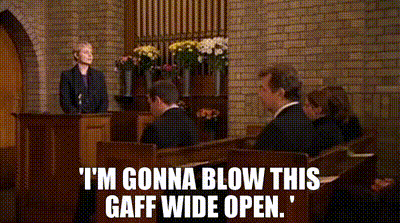
Veep?
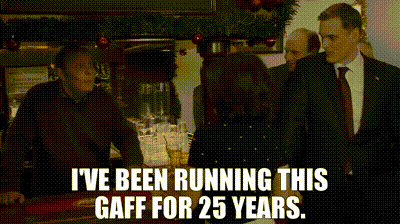
Layer Cake?
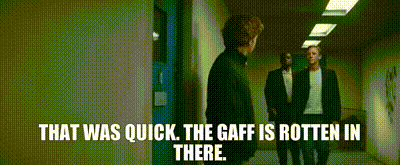
Withnail &a I?
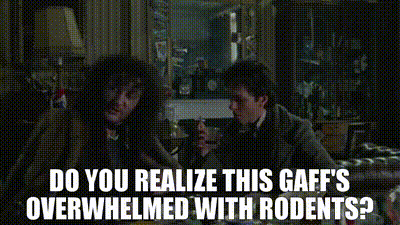
To “gallivant” means to roam, or to set off on an expedition, with the sole intention of having some light-hearted fun. I imagine someone skipping through a forest or a hilly meadow.
You’re supposed to stay and be a princess, not go gallivanting after pirates!
I’m going to gallivant right over (Game of Thrones S6E5) https://getyarn.io/yarn-clip/6b807166-bb4c-482d-99fd-ad1247186bcc
“Off they go again, gallivanting.”
I would only use this in a kind of sarcastic way, in order to complain about someone doing other things when they should be focusing on something more serious.
Off he goes, gallivanting around the South of France when he should be at home sorting out all the problems.
A “geezer” is a man that could be described as “suave” or “dapper,” and is often suited and booted. Men from east London are also commonly referred to as “geezers.”
A geezer is a slang word for a man, like a bloke.
“That guy’s got such swagger — he’s a proper geezer.”
I use this one quite a lot although it does sound quite cockney (other regional dialects use it too). You can also say “bloke”.
“Give me a call” or “ring me.” The phrase is sometimes shortened to “give me a tinkle.”
“Tinkle” refers to a phone’s ring, while “blower” is slang or telephone and refers to the device that predated phones on Naval ships. Sailors would blow down a pipe to their recipient, where a whistle at the end of the pipe would sound to spark attention.
“Give me a tinkle on the blower.”
I never say it.
Astounded; bewildered; shocked.
“Gob” is slang for mouth, so if you’re gobsmacked, you’re shocked to the point of clasping your jaw in disbelief.
“I was gobsmacked!”
It’s a good word which everyone should know.
Not to be confused with literally being disembowelled, someone that says they’re “gutted” is devastated or extremely upset.
“I was absolutely gutted.”
It’s one of the most common and recognisable bits of UK slang, along with knackered and chuffed.
While Americans are more likely to say “seven thirty” or “five fifty,” Brits will more often than not refer to times in “minutes past” the hour (or minutes to). Eg, “half past seven,” and “ten to six.”
It’s unclear why Brits appear to favour analogue time-telling while Americans go for the digital format. (we don’t do it so much any more)
“It’s twenty past eleven.”
On the right hand side of the clock, it’s past (including half past).
On the left hand side of the clock, it’s to.
Quiz – say these times
Answers below
1:10
2:15
3.20
4.25
5.30
6.35
7.40
8.45
9.50
10.55
Answers
1:10 “ten past one”
2:15 “a quarter past two”
3.20 “twenty past three”
4.25 “twenty five past four”
5.30 “half past five”
6.35 “twenty five to seven”
7.40 “twenty to eight”
8.45 “a quarter to nine”
9.50 “ten to ten”
10.55 “five to eleven”
Sometimes these are abbreviated to “half past” “quarter past” “ten to” etc.
“Hank Marvin” is Cockney rhyming slang for “starving.”
“I’m Hank Marvin” means “I’m hungry” or “I’m ravenous.”
“When are we going to eat? I’m absolutely Hank Marvin.”
I do use this one, and my wife has learned to understand it.
“Innit” is an abbreviation of “isn’t it” most commonly used amongst teenagers and young people.
You can add it as a tag question on the end of a sentence, no matter what the auxiliary verb is.
He hasn’t done his homework, innit.
He ain’t done his homework innit.
You ain’t done your homework innit.
It can also be used as a response as a way to confirm something.
“It’s really cold today.”
“Innit though.”
I think also we use “Is it?” as a way to show surprise.
“My mum won the lottery”
“Is it?” or “Yo, is it fam!?”
Sounds terrible when I say it.
I use “innit” quite a lot, but ironically, meaning I know I’m not normally the type of person who uses it and I’m kind of imitating Ali G.
Make a run for it; run away; scarper.
“That’s when all of the lights came on, and so we legged it.”
We used to say this all the time when we were kids.
I never say this and if I did it would be embarrassing. It’s the sort of thing I’d hear from schoolkids on the bus in London.
The same people who’d say things like “innit” and “blud” or “fam”.
Something that takes a lot of effort and probably isn’t going to be worth all of the effort, either, could be described as “long.” This could be due to the lengths that the person will have to go to in order to complete the task.
Something that is “long” is probably also annoying or aggravating.
“Cleaning the kitchen is long.”
If someone’s “caught the lurgy,” they’re suffering from cold or flu-like symptoms.
“She’s come down with the dreaded lurgy.”
Brits are known for favouring a drink or two, so much so that almost any noun can be used as a substitute for “drunk.”
In his stand-up show, British comedian Michael MacIntyre said: “You can actually use any word in the English language and substitute it to mean drunk. It works.”
https://www.youtube.com/watch?v=F2hyB_Eg6q8
Examples include “trollied,” “smashed,” and “gazeboed.”
“I was absolutely car-parked last night.”
sloshed, sozzled, wasted, pissed, badgered, rat-arsed
Slightly irritated or annoyed.
“I was a bit miffed, I can’t lie.”
Something unpleasant, unappetising, or highly unattractive might be described as “minging.”
The term comes from the Scottish slang word “ming,” meaning faeces.
“What’s in that sandwich? Is that ham and tuna? That’s minging.”
It’s rude but sometimes people use the word to describe an ugly person, especially an ugly woman, but that’s not very nice at all.
“Your sister’s minging.”
“Mint” might be used when referring to something of the highest calibre.
Derived from “mint condition,” which refers to something pre-owned that retains its pristine condition, although something that’s just “mint” doesn’t have to be pre-owned.
“Those shoes are mint!”
My new Dr Martens are mint.
I never use it.
Derived from the Newcastle sociolect, “mortal” was made widely known across the country in 2011 by reality TV show “Geordie Shore.”
“Mortal” describes someone highly intoxicated or drunk in a sloppy manner.
“Did you see Scott last night? He was mortal.”
in the nick = in prison
To get nicked = to get arrested
To nick something = to steal something
“The Nick” can refer to prison, while “to nick” also means to steal.
“Did you just nick that?”
“If you nick that you’ll get caught, or you’ll end up in the Nick. You’ll get nicked!”
Terrible accent by Don Cheadle in Oceans 11 (supposed to be Cockney)
I’ve never heard or used this phrase (except the “I’m on it” part).
This colloquialism might be said by someone that has the situation under control.
“I’m on it” is definitely a phrase.
“How’s the report going, Steve?”
“Don’t you worry, Alan, I’m on it (like a car bonnet).”
Alan thinks “That would have been alright if he hadn’t said ‘like a car bonnet at the end’….. He’s going to have to go.”
“Don’t worry Alan. I’m on it!”
Someone that’s “on the pull” has gone out, usually on a night out, with the intention of attracting a sexual partner.
“Pull” can also be used as a verb. If you’ve “pulled,” you’ve kissed someone.
“You look nice. Are you going on the pull?”
“Get your coat, you’ve pulled.”
Also: on the lash
“Over-egging the pudding” means embellishing or over-doing something to the extent that it’s detrimental to the finished product. Going over the top.
Basically though, it means going too far, doing too much, pushing a situation to the max, but it is said in a pejorative and disdainful way, like “Don’t over-egg the pudding Luke”.
“We get it — you’ve injured yourself. Don’t over-egg the pudding.”
Rubbish; terrible, really bad. Poor quality.
“This is pants.”
“That film was total pants.”
How was the film? Pants
What about the match? Pants
How was England’s performance? It was pants
What about the pub where they showed the game? Pants
The beer? Pants
How about your pants? They’re pants.
Actually no, my pants are great. They’re the only thing that isn’t pants, my pants.
That’s ironic isn’t it, that your pants are great but everything else is pants, but not meaning great.
I think it’s because pants in general are bad, but my pants just happen to be great so they’re
The exception that proves the rule.
Yes, but I’ve never understood that phrase. How can an exception prove a rule? Surely it should be the opposite?
I never ever use this. I’m much more likely to say “diss” as in “disrespect”. So let’s replace “par” with “diss” instead.
A “diss” is a disrespectful comment.
“Diss” can also be used as a verb, eg, “You just got dissed.” “Are you dissing my English?”
It comes from the word disrespect or disrespected.
“I don’t mean this as a diss, but did you remember to wash this morning?”
I don’t think I would use it unironically.
Are you dissing me?
A situation which has quickly evolved into an accident waiting to happen might be described as “gone pear-shaped.”
The phrase is reportedly old slang from the Royal Air Force and was used to described awry expeditions and flights.
“Well, this has all gone a bit pear-shaped.”
Simon, where have you been?
Well, I went out to buy some milk but things got a bit pear shaped and I ended up going to Area 51.
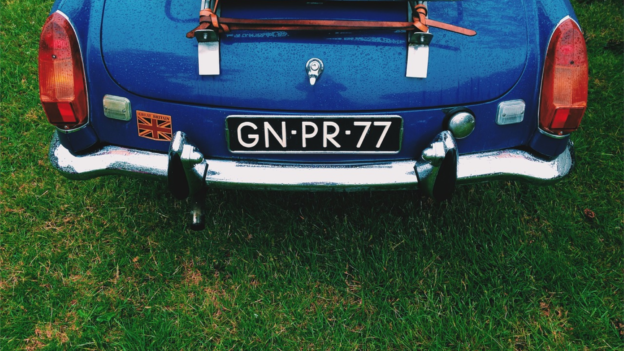
An episode about British English slang and culture, featuring expressions that Brits know but everyone else finds confusing. Here are the first 30 expressions in a list of 88 that I found on independent.co.uk. Includes plenty of funny improvised examples to make you laugh out loud on the bus.
![]() [DOWNLOAD]
[DOWNLOAD]
Fitzroy Tavern, 16 Charlotte St, Fitzrovia, London W1T 2LY
From 2PM.
I’ll be there.
Let’s play some board games and have a drink.
Zdenek is organising it. If you could send him an email to let him know you’re coming that would be great. teacherzdenek@gmail.com
https://www.independent.co.uk/life-style/british-phrases-english-language-sayings-britain-england-uk-different-a8138046.html
He’s a few sandwiches short of a picnic, isn’t he?
I’m a bit of a Beatles anorak.
Bagsie the front seat! Shotgun!
He’s the bee’s knees.
I went on a 3-day bender last weekend. I feel rough as f*ck right now.
You pulled an absolute blinder in that negotiation.
EDIT 1
My brother has chipped in here with a comment, saying that he thinks the most common collocation with Blinder is “to play a blinder” and I admit that he’s right. Thinking about it, I’ve definitely heard “play a blinder” more than “pull a blinder”.
A quick internet search shows us the same thing.
Collins says it’s when a sports player or musician plays something really well but it’s also applied to when anyone does anything well. For example, you played a blinder in that meeting.
Or You played an absolute blinder getting us front row tickets for this show.
OK, so let’s say “play a blinder” more often than “pull a blinder”.
Bloody hell Harry! Bleedin‘ Heck!
Put the bag in the mug, add hot water, then some milk and Bob’s your uncle.
We’re staying in a bog-standard hotel up the road.
Put the money in the boot of the car.
You did a real botch(ed) job on that chair. It is a real death-trap. You really made a botch of that, didn’t you?
Do you need a brolly?
Come on, budge up a bit. I don’t have much room.
I like a nice cup of builder’s tea, me.
Give us a butcher’s at that! Have a butcher’s at this.
I’m really cack-handed today. I don’t know what’s the matter with me.
You’re such a cheeky little monkey!
It must have been Chinese whispers.
Let’s get together and have a good old chinwag.
I tell you what. It’s absolutely chockablock out there. Absolutely chocka.
You must be really chuffed!
You dropped an absolute clanger at the dinner party.
What a load of absolute codswallop.
Those new iPhones cost an absolute bomb.
I am absolutely cream-crackered. I think I’m going to go straight to bed.
Our neighbour is a bit of a curtain twitcher.
I’m going to make some tea. Dench. (?)
EDIT 2
I just want to add something about the word “Dench”.
I said that I didn’t know this and that I don’t use it.
My brother reckons the word is “fake”, by which I think he means that this one isn’t really used.
He’s never heard or used it either.
I don’t know why the Independent would add a fake word in their list, but let’s just say that you can probably avoid the word “Dench” and not worry about it at all.
If you’ve heard or seen the word being used, add a comment to the comment section.
I’ve just done a quick google check and there are entries for the word in Collins (but not an “official” definition – it was added by a user) and Urban Dictionary – both confirming that the word basically means “nice” or “Awesome” but there aren’t that many entries for it.
So I think we can conclude that it is a new phrase, probably only used by a few people, particularly younger generations.
Tim’s a jolly good bloke. A bit dim though.
That exam was an absolute doddle.
You made an absolute dog’s dinner of that.
For me, this is British humour and music at their finest, and it's part of a European absurdist art movement that started 100 years ago, and which runs through a lot of Britain's best TV and radio comedy. 2/12
— Luke Thompson (@EnglishPodcast) November 6, 2019

Actually, it’s 17 jokes, including some simple one-liners and a few longer story-based jokes for you to remember and practise telling yourself. Listen to Luke read out and explain some pretty awful but enjoyable word puns and shaggy dog stories, and learn some English in the process.
![]() [DOWNLOAD]
[DOWNLOAD]
An Irishman walks into a bar in Dublin, orders three pints of Guinness and sits in the back of the room, drinking a sip out of each one in turn.
When he finishes all three, he comes back to the bar and orders three more.
The bartender says to him, ‘You know, a pint goes flat after I draw it; it would taste better if you bought one at a time.’
The Irishman replies, ‘Well, you see, I have two brothers. One is in America, the other in Australia, and I’m here in Dublin. When we all left home, we promised that we’d drink this way to remember the days we all drank together.
The bartender admits that this is a nice custom, and leaves it there.
The Irishman becomes a regular in the bar and always drinks the same way: he orders three pints and drinks the three pints by taking drinks from each of them in turn.
One day, he comes in and orders two pints. All the other regulars in the bar notice and fall silent.
When he comes back to the bar for the second round, the bartender says, ‘I don’t want to intrude on your grief, but I wanted to offer my condolences on your great loss.’
The Irishman looks confused for a moment, then a light dawns in his eye and he laughs. ‘Oh, no, ‘ he says, ‘Everyone is fine. I’ve just quit drinking!
A farmer was sitting in the neighbourhood bar getting drunk.
A man came in and asked the farmer, “Hey, why are you sitting here on this beautiful day, getting drunk?”
The farmer shook his head and replied, “Some things you just can’t explain.”
“So what happened that’s so horrible?” the man asked as he sat down next to the farmer.
“Well,” the farmer said, “today I was sitting by my cow, milking her. Just as I got the bucket full, she lifted her left leg and kicked over the bucket.”
“Okay,” said the man, “but that’s not so bad.” “Some things you just can’t explain,” the farmer replied. “So what happened then?” the man asked. The farmer said, “I took her left leg and tied it to the post on the left.”
“And then?”
“Well, I sat back down and continued to milk her. Just as I got the bucket full, she took her right leg and kicked over the bucket.”
The man laughed and said, “Again?” The farmer replied, “Some things you just can’t explain.” “So, what did you do then?” the man asked.
“I took her right leg this time and tied it to the post on the right.”
“And then?”
“Well, I sat back down and began milking her again. Just as I got the bucket full, the stupid cow knocked over the bucket with her tail.”
“Hmmm,” the man said and nodded his head. “Some things you just can’t explain,” the farmer said.
“So, what did you do?” the man asked.
“Well,” the farmer said, “I didn’t have anymore rope, so I took off my belt and tied her tail to the rafter. In that moment, my pants fell down and my wife walked in … Some things you just can’t explain.”
Roland, an Englishman went to Spain on a fishing trip.
While there, Roland hired a Spanish guide to help him find the best fishing spots. Since Roland was learning Spanish, he asked the guide to speak to him in Spanish and to correct any mistakes of usage.
Together they were hiking on a mountain trail when a very large, purple and blue fly crossed their path. The Englishmen pointed at the insect with his fishing rod, and announced, ‘Mira el mosca.’
The guide, sensing a teaching opportunity to teach Roland, replied, ‘No, senor, “la mosca”… es feminina.’
Roland looked at him in amazement, then back at the fly, and then said, ‘Good heavens….. you must have incredibly good eyesight.’
During Desert Storm, an American Air Force officer met a Saudi Air Force officer. Their love of flying bonded them together and soon they became friends. One day, while making small talk, the discussion turned to family. Each expressed how much they missed their wives and children. The Saudi officer decided to pull out his wallet and show pictures of his family to the American.
When the American saw the picture of the Saudi’s family, he was shocked. “Hey, that looks like my son,” he said, referring to one of the Saudi officer’s children. “That looks just like my Juan!”
The Saudi officer explained. “About 15 years ago, I went to Mexico to drill for oil. While I was there, my wife and I decided to adopt a young boy. We named him Amal and he has grown up with us.”
The American said, “Well, about 15 years ago, my wife and I were stationed at the American embassy in Mexico City. We adopted Juan and now he is in high school. I wonder if your boy and mine are twins!”
Excitedly, both officers compared the boys’ birthdays, and sure enough, the boys shared the same day. They agreed that the two boys must be twins. Immediately, they vowed that after the war ended they would meet in Los Angeles and have a big reunion to unite the two long-lost brothers.
When the news media received word of this, they created media frenzy as they eagerly promoted the day when the boys would meet. Eventually, the big day arrived and local, national and international news outlets, as well as several hundred onlookers descended on LAX airport.
There was a festive mood in the air, and representatives from the Mexican, U.S., and Saudi Arabian governments attended.
However, to the disappointment of the assembled crowd, a representative from Saudi Arabian Airlines announced that the plane had been delayed and would be over six hours late.
Juan’s mother took the podium and addressed the crowd saying, “You might as well go home. There’s no point in waiting here.”
“Why would we want to do that?” asked a reporter.
“Well,” she replied, “they’re identical twins. If you’ve seen Juan, you’ve seen Amal.”

One more episode about this TV series involving entrepreneurs getting investment for their business startups. In this one there’s plenty of disagreement and some strong feedback from the Dragons.
![]() [DOWNLOAD]
[DOWNLOAD]
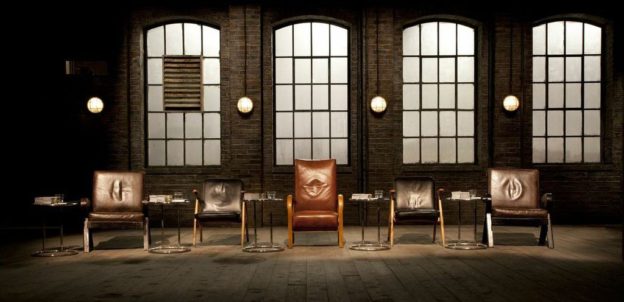
Listen to a real business negotiation and learn loads of English in the process. Vocabulary, scripts and notes available below.
![]() [DOWNLOAD]
[DOWNLOAD]
Welcome back to LEP. This is part 2 of this mini series I’m going to do about BBC Dragons’ Den, the TV show about entrepreneurs trying to raise finance for their business startups by going to meet the Dragons – a group of 5 business angels looking to make money by investing in interesting new business propositions.
In part 1 of this I did a long business ramble all about the different factors and considerations involved in an entrepreneur attempting to do an investment deal with a private equity investor. That covered loads of vocabulary relating to loads of different areas of business and laid the ground work for this episode in which we are going to use a real pitch from an episode of Dragons’ Den as a case study from which we can learn loads of English.
Also, the story of this particular investment is particularly interesting and the negotiation takes an unexpected turn which creates more emotional drama than you might expect from a business meeting.
So, at the end of part 1 we listened to Kirsty Henshaw’s original pitch. Let’s listen to that again and break it down for language. After that we’ll listen to the rest of the meeting in bits. We’ll listen and then listen again and break it all down.
This should be a really good one! I hope you’re listening carefully. We might be able to get all of this done in this episode, we will see. There are other Dragons’ Den pitches that I’d like to do too so I might add another episode with some other pitches as well. So perhaps this will be a 3 or 4 part series.
Right, so let’s listen to Kirsty Henshaw again and remember my questions from before.
Would you like to invest?
What questions would you like to ask next?
Kirsty’s pitch begins at 44:00
Peter Jones
It tastes more like frozen yoghurt. Is that fair?
– She wanted a healthy option, similar to ice cream but there’s no dairy that’s why it’s a frozen desert.
How much has it cost so far?
– £20,000
How many have you sold?
– 2,500 units
– Went to a big meeting with a large supermarket – it’s completely unique, some of the staff had heard about it before
Do you have any forecasts in the first year?
– 300,000 units – starting to get into bigger places now
Duncan Bannatyne
How healthy is it? How much fat is in it?
– Less than 3% fat in all of them, no sugar in any, carbohydrates are from fruit extracts, a good form of sugar
James Caan
What are the ingredients?
Brown rice milk (because soya isn’t great for children and rice milk is a good digestive enzyme), the fat is organic virgin coconut oil, sweetened with extract of apple, carob and grape.
Deborah Meaden
How far are you down the track with the supermarket?
– Min 400 stores from Sept when they do their refresh
Are they committed?
– At least 350-400 stores to trial it
Theo Paphetis
Which supermarket is it?
– Tesco
They must have asked you whether you could produce in the right volume?
– Yes
What did you say?
– I said yes because I’ve spoken to the manager of the biggest ice cream manufacturers and they can make it no problem, if we get the order (volume – numbers)
James Caan
Do you have any idea what Tesco’s potentially could order?
– At least four flavours for each store to start with
How many in a case?
– 12
If they sold one case per week per store, that’s 400 cases. How much do you make per unit?
– Just over one pound
So 4,000 per week is what you’d make. That’s 200,000 a year.
– Not including my current suppliers
What did you forecast your profit in year one?
– £300,000
So that forecast is not a million miles out. There’s some substance around it.
What’s your background?
Uni (sports science), but had to leave because mind was on the business
Theo
Who is Worhingshaw’s?
– Mix of boyfriend and her name – to make it sound like it had been around for a while
Have you really done all this on your own?
– Yes
How do you invest the money in this?
– 2 jobs and a bit of a night job, and my little boy
You’re pretty amazing aren’t you?
– No, not really.
[She starts crying]
This has been really tough for you hasn’t it?
– I just do it all for my little boy. I just want him to have a good life.
I’ve got to be honest with you. I’m finding it really really difficult to actually take on board what you’ve achieved. It’s phenomenal. I’m totally blown away by it. I’m going to make you an offer. You’ve come in here asking for 60,000 for 15% but I want 40%.
And I’ll explain to you why. Because I’m not going to give you 60,000, I’m giving you 100,000 because that’s what I believe you need to make this business successful.
Deborah Meaden
Let me tell you where I am. I think you’ve done a great job against all odds, but here’s my blunt and honest truth to you. I’m not going to beat Theo’s offer so I’m not going to waste my time making you one. Thank you very much but I’m out.
Peter Jones
Where do you want to take it? You’d love to see this product in every shop. Reggae Reggae Sauce was a big success because of Levi Roots’ whole story. You could be the frozen desert version of Levi Roots.
For that reason I’d like to make you an offer for the full amount but I only want 25% of the company.
James Caan
Let me wish you every success but you’re not going to need my offer so I’m out (there are already deals on the table).
Duncan Bannatyne
I’ll match Peter’s offer (£60,000 for 25%)
Kirsty
I don’t want to give 40% away but thank you for your offer Theo.
I’m really confused now because I know you’re both brilliant.
You’re both ideal to help me, so I don’t really know what to do now.
Peter
If we raised it to 30% so we got 15% each, I’m more than happy to work with Duncan if that’s something he would accept (yes).
Kirsty
I’d really like to work with both of you. It would be ideal so thank you very much I’d really like to accept your offers.
That’s it!